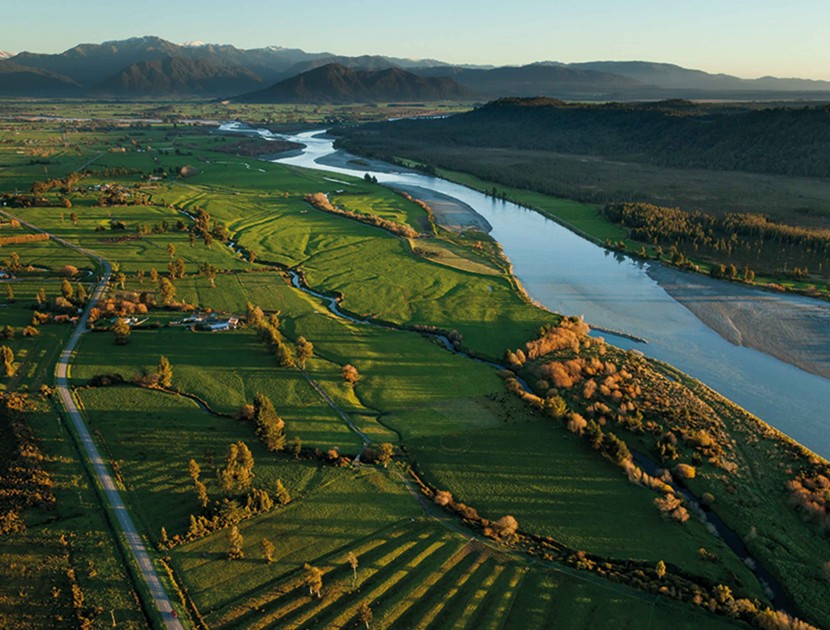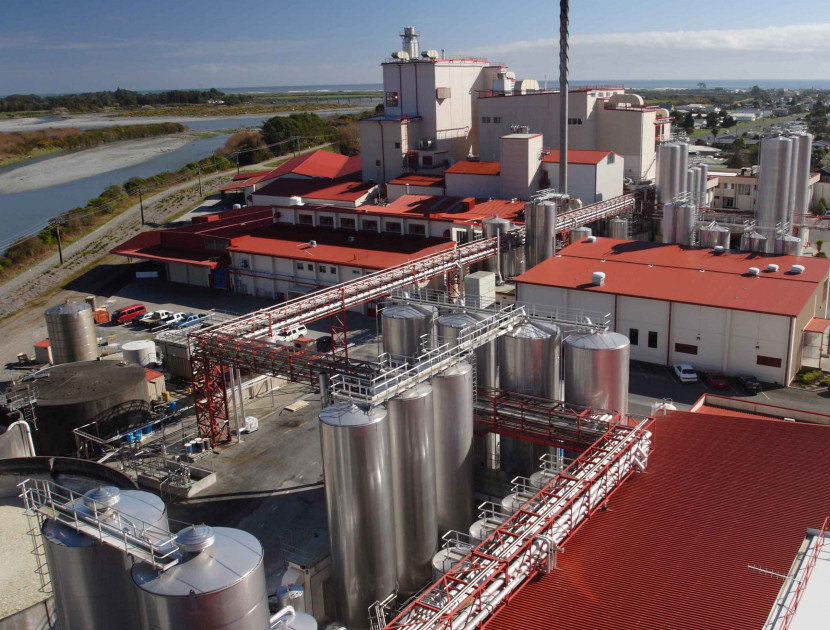Environmental sustainability is central to Westland’s purpose of ‘nourishment made beautifully for generations’. The energies we put into developing a sustainable business today ensure that we are well placed to grow into the future.
Our initiatives

Whitebait restoration
Establishing natural habitats
habitat for whitebait.

Ocean outfall
Protecting the future

Environmental stewardship
More of our initiatives:
Waste water treatment
Both our Hokitika and Rolleston sites have waste water treatment systems in place.
On-farm
On-farm, Westland is working with Suppliers and farmer suppliers to find ways to reduce the carbon footprint of dairy. Working with Lincoln University, AgResearch and regional councils, Westland is investigating ‘Carbon Mitigation Schemes’ that look at alternative fuel sources on-farm and also carbon sequestration. The schemes work by implementing carbon capturing activities which, in turn, offset the greenhouse gas emissions from Westland – both on-farm and from the processing sites at Hokitika and Rolleston.
Many of our farmer suppliers undertake environmental initiatives such as riparian planting, and investigate methods to reduce the amount of nitrogen leaching from farms.
Emissions
Westland Milk Products voluntarily signed the ETS in 2011 ahead of the legislative requirement to do so. We consistently implement measures to reduce our carbon footprint. Our fleet of tankers are all powered by Euro-five diesel motors. Their fuel-efficient engines deliver maximum power with minimum emissions. Latest GPS technology minimises the distance travelled, ensuring milk is transported with the least environmental impact possible. Our culture is one of continuous improvement regarding air quality, focusing on clean burning boilers to maximise efficiency and to reduce CO2 emissions.
Recycling initiative
Suitable materials at our processing facilities are separated and compressed on site and sent to recyclers in Christchurch and Auckland. Currently, we’re working on initiatives to undertake plastic recycling on farms, including plastic silage wrap and plastic containers.
